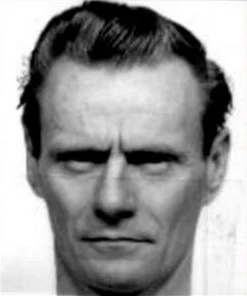 |
Trustees lower the remains of Jack Harry Smith, the oldest inmate on Texas'
death row, on Thursday, Apr 28, 2016, in Huntsville. Ph: Elizabeth Conle (HC)
|
Jack Smith outlived most of his attorneys, the D.A.'s, the judge, and many family and friends. So he was buried yesterday in Huntsville at Peckerwood Hill, aka the Joe Byrd Cemetery, to lay in rest with over 2000 others who died in prison but were not claimed. A few of his relatives showed up for the burial.
HUNTSVILLE - Jack Harry Smith spent most of his 78 years behind bars, much of it on death row, so it only seemed right that when the time came, he would spend eternity close to the world he knew best. Until he passed on April 8, Smith was the oldest inmate alive on Texas' death row.
HUNTSVILLE - Jack Harry Smith spent most of his 78 years behind bars, much of it on death row, so it only seemed right that when the time came, he would spend eternity close to the world he knew best. Until he passed on April 8, Smith was the oldest inmate alive on Texas' death row.
Smith, his body unclaimed by family or friend after he died earlier this month, was buried Thursday in the Texas Department of Criminal Justice's Captain Joe Byrd Cemetery, joining more than 2,000 former prisoners who drew their last breaths in custody, some of them as far back as the late 1800s.
With the sun burning through the last of the morning haze, prison chaplain David Collier said a few words before Smith and three others were placed in recently dug holes near the bottom of a gentle slope on Peckerwood Hill. Seven prison trusties were the sole mourners.
Collier had the advantage of having known Smith when he served as chaplain of the Polunsky Unit where he was housed. But in truth, he didn't know all that much about the man he was burying.
"He was a Christian and of the Pentecostal faith," Collier said. "Jack always was talkative, unless he was having a bad day. We all have bad days. But he often wanted something to read and I'd take it over to him."
In the great majority of deaths of those in the custody of the Texas Department of Criminal Justice - there were 432 in all units in 2015 - relatives take the remains for private burial. But 100 or so a year are left with the agency to dispose of. Most end up buried at Joe Byrd, as has been the case for more than a century.
Avoided execution
 |
| Jack Harry Smith |
But in an ironic twist, health problems complicated Smith's early years on death row, and he never got a date with the executioner. It was thought, instead, that he would die of natural causes. A heart operation worked and he lingered on through years of appeals, though others connected to the case were not so lucky. Two of his lawyers and the judge overseeing the case died, putting Smith in limbo. His case essentially fell through the cracks as he grew older.
In 2001 and already into his 60s, Smith expressed anger that nothing was happening in his appeal. "I feel that the system is waiting for me to pass away of old age," Smith said in an interview with the Associated Press. "I'm angry at the justice system, at the courts for wasting taxpayers' money, for giving me this hospitality."
It may have been a false anger. Collier suggested that Smith was pretty much resigned to his fate, knowing he would never go to the execution chamber. Although the Harris County District Attorney's Office maintained that Smith's case was still active - officially - in truth both sides mostly were going through the motions.
Avoiding bad PR
Smith's last lawyer, David Dow, said in 2014 there was no way the DA's office would push for an execution date, knowing that even if it were successful, the sight of an octogenarian prisoner being wheeled into the death chamber would make for bad PR. And one of Smith's former prosecutors agreed. An accomplice had been given a life sentence. By sheer fortune, Smith had ended up with one, too.
Nobody seemed to mind all that much that he had cheated the hangman. Relatives of the victim were not clamoring for action. And Smith was far from the worst of death row's murderers. He would just keep getting older until the day arrived when he wouldn't.
His grave will be marked with a small, simple headstone bearing his name, prison ID number, and his date of death. Whether anyone ever will show up on Peckerwood Hill with flowers can't be known. Most of the graves here are bereft of any such loving remembrances.
Decades of erosion have stripped some of the headstones of all markings, and they no longer even carry the name of those whose remains lie below. More than most cemeteries, Joe Byrd is a place of the forgotten, and in many cases, the unmourned.
Jack Harry Smith, number 615, now rests among them.
Source: Houston Chronicle, Mike Tolson, April 29, 2016 (wr)